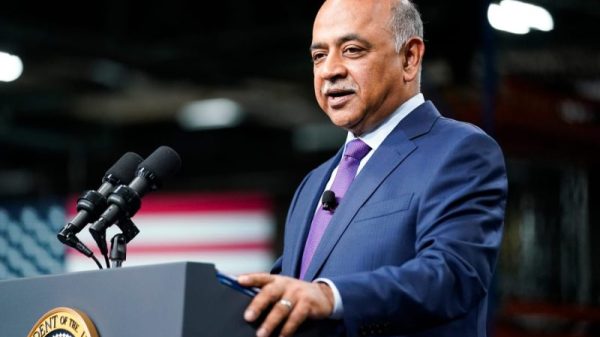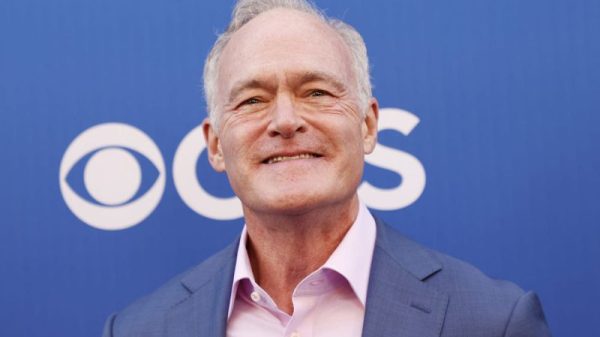Investing.com — Eric Jaffe, CEO of BCA Research, talks with Investing.com about what the outlook for market research might look like under the incoming Trump administration.
Q1. Is there very little clarity on what Trump’s economic policy could look like. Can you discuss why this is?
There are two major reasons why Trump’s policies are harder than those of the previous administrations to predict. One, Trump’s personality is unpredictable. And two, many of his appointees come from outside the establishment and, therefore, do not have track records upon which we can easily extrapolate. But that does not mean that all forecasting is in vain. On the campaign trail, the President-elect made a slew of promises. Whether it was imposing 10% tariffs on the world and 60% tariffs on Chinese imports (Reuters), scaling back climate regulations and ramping up fossil fuel production, or slashing tax on corporations (BBC), he made bold pledges that will profoundly impact geopolitical dynamics and global markets.
Yet, as we saw in his first term, Trump is not always able to carry out his threats. It is not at all clear, for example, that he will withdraw the United States from NATO (Atlantic Council) or impose permanently higher tariffs through legislation (USA Today). Trump’s willingness and ability to carry out these policies will profoundly impact markets and the global economy. While nobody has a crystal ball, investors will increasingly rely on research providers who can help see around corners, plan for various scenarios, and handicap potential outcomes. The demand for research is likely to increase.
Q2. What specific sectors or asset classes do you see the most investor demand for research about during Trump’s second term?
I believe the demand for research will increase across all major asset classes. First, Trump’s stances on trade, immigration, and foreign policy increase both positive and negative tail risks. Second, with thin majorities in both houses of Congress, some of his initiatives – most notably tax reform – will result in long-term or structural change.
Company-focused equity research is likely to thrive as Trump’s ideologically aligned cabinet takes strong positions that affect multiple sectors. Investors will want to better understand the precise impact of deregulation, which is generally good for corporate earnings, especially for energy and banks. But loosening regulations could produce a negative or unpredictable effect in other sectors, such as in healthcare. Meanwhile, a cooling labor market could slow overall growth and produce headwinds.
Given trade tariffs and Elon Musk’s attempts to cut red tape, Trump’s second term could help small companies relative to the large caps that have dominated the bull market. We’ve seen stock indexes spike already, with the S&P 500 hitting an all-time high (CNBC) and the small-cap Russell 2000 reaching a record peak following the appointment of Scott Bessent as Treasury Secretary (Reuters). But investors need research to find out whether corporate earnings can deliver and keep up the optimism.
Foreign policy may work at odds with domestic policy. In the energy sector, deregulation is a boon, but Trump has also threatened to repeal the Inflation Reduction Act, especially the renewable energy subsidies (Utility Dive). An earlier ceasefire in Ukraine could reduce
European imports of US natural gas, while enforcement of oil sanctions against Iran could lead to unplanned oil disruptions across the Middle East. The business cycle and the bond market will be critical. Too many tax cuts could cause the budget deficit to surge and lead to higher inflation. Too many spending cuts could hit the brakes on the economy. Investors will need to follow the tax bill negotiations closely.
Q3. Do you think there be a significant boost for banks and brokerages from the surge in demand for research divisions?
There will be a general boost for banks and brokerages offering research as clients grapple with the policy process in the White House, Congress, and abroad. But demand for independent research providers will rise even higher. First, investors will look for unbiased research from parties without conflicts of interest. Independent research providers are not influenced by an investment we have an interest in supporting. Yet we do have “skin in the game” in the sense that our research is accountable to investors and the markets.
The Trump win will also push investors to seek tailored insights specific to different asset classes and regions. Independent (LON:IOG) research firms are nimble – I’ve seen it at BCA. We can roll out new products if we see client demand in an area surge, like we did in 2023 with our Private Markets & Alternatives product, which provides a framework for investors in private equity, credit, and other private markets.
Q4. Which of Trump’s policy areas – fiscal policy, oil and gas, or labor markets – do you think will create the most uncertainty for investors?
The trade war is the biggest driver of uncertainty because Trump can impose broad tariffs unilaterally, yet global manufacturing economies are already weak. Trump recently pledged to introduce 25% tariffs on all goods coming into the US from Mexico and Canada, plus an additional 10% on Chinese imports on Day One, January 20 (Sky News).
Half of US crude oil imports come from Canada (Financial Times), and a considerable chunk of US manufacturing imports come from Mexico, including vehicles, agricultural products, and electrical equipment (The Washington Post). But the trade wars with China and Europe could hit even harder since these economies are larger and less dependent on the United States.
Will Trump negotiate a “Phase Two” trade deal with China to avoid disruptive global economic decoupling? Will he settle for trade partners increasing short-term purchases, or will he demand long-term structural adjustments that are harder to deliver? Can the US negotiate an international intervention into currency markets? These and other questions require constant monitoring, research, and analysis and a robust theoretical framework. For most investors, too much is at stake to leave to guesswork.

































